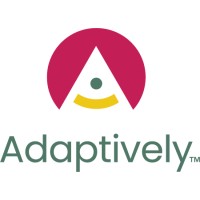Information retrieval and memory are underpinning neurological skills that help us accomplish a variety of learning tasks. While most people understand the importance of memory, many may not understand retrieval. It is the ability to fluidly recall and draw information from our stored banks of knowledge for application in tasks, in writing, or in conversation. According to the APA (American Psychological Association), practicing retrieval is a powerful way to improve memory functions and learning capacities. From formulating to answering questions to quickly retrieving math facts to applied information across all subject learning, efficient memory and speed of retrieval help us gel information in our working and long-term memories as well as adhere new learning to solid foundations.
If you’ve ever struggled with something being on the “tip of your tongue” or losing the opportunity to provide input on a conversation or to a question, because you were struggling to put your thoughts together, you’ve experienced what happens when retrieval and memory are compromised for simple tasks. When a child is given tasks like being called on to answer a question, explain a process, or asked to construct a written response, and these processes aren’t coming easily, a child may feel frustration or embarrassment and lose the motivation to learn.
But at Adaptively Education, we want to share with parents that there’s good news! There are several fun and interactive tasks and games students can do (and parents can do along with them) that help activate the cognitive skills of retrieval and memory. The better news is that you may already have these materials at home and just didn’t realize what great brain boosters they are!
Cards, Dice Games, and Dominoes
Classic card and dice games, like Uno and Yahtzee, require strategic thinking, short-term and working memory, and quick calculations. Dominoes is also a great game to support cognitive skills. These games create fun opportunities to exercise patterning, grouping, sorting, and classification.
Question Games
There are commercial games available for questioning like Guess Who and Pictionary, but these games are easy to play even without a specific purchased game. 20 Questions, Charades, clue-giving and guessing games can be as simple as writing several different objects, people, or feelings on index cards and taking turns acting them out and giving or receiving clues for guessing. Question games create opportunities for top-down information processing, information seeking, and problem solving.
Puzzles
There are many types of puzzles, and all of them are great for putting young brains to task. Rebus puzzles ask a question and the clues to the answer are found in numbers, letters, pictures and symbols. Knowledge and retrieval of cliches and expressions are needed to solve the puzzles. Crossword puzzles are classic activities for retrieval of vocabulary and spelling. Jigsaw puzzles can be found for younger and older students, and they are highly effective brain games. Something so simple and classic as a puzzle requires quite complex and rich work of the left and right sides of the brain with a good dose of sustained attention. These interconnections improve mental speed, visual-spatial reasoning, part-whole relationships and memory.
Dust off and unbox the games and puzzles to engage your child in learning that is fun and engaging for family members of all ages. Adaptively Education has tapped into the power of games for learning as part of its offerings for student enrichment. Our games are aligned with core learning standards, and they are strong tools for motivation, memory, retrieval speed, and so many other cognitive skills that help students be confident learners.


